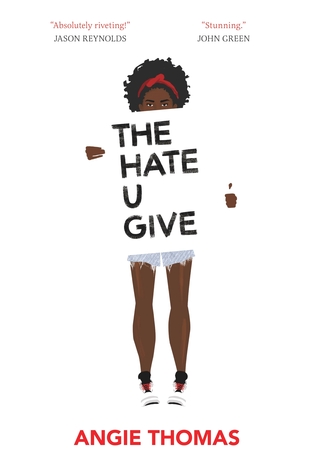 A powerful book that depicts the very real and personal stories that are likely behind every white-officer-kills-unarmed-black-person tragedy we hear about in the news.
A powerful book that depicts the very real and personal stories that are likely behind every white-officer-kills-unarmed-black-person tragedy we hear about in the news.
I hope this book might be especially compelling for those who are sure they aren't racist, yet they can't quite bring themselves to fully support Black Lives Matter; maybe this book can give them a little more insight to help them better understand the movement. I think those who do support Black Lives Matter, and already follow black activists on Facebook or Twitter, will have their beliefs reaffirmed. And for those who live in the "Garden Heights" of America, I don't know how this book is being received, but I hope they feel they are understood, and that this book does them justice.
For all the ways this book is relevant to current events, I think it was smart to not actually reference "Black Lives Matter", which is a politically charged phrase. Instead, the author does a remarkable job just showing how every life really does having meaning, even in the "hood", and even when the media tries to make the victim look like a thug in an effort to justify their death.
Similarly, the book doesn't even mention "code switching", but it's clear that's what Starr is doing when she switches been "Garden Heights Starr" and "Williamson Starr".
The book touches upon a lot of different topics within racism, and we see characters who span the spectrum. There's Starr's white friend Hailey who suffers from "white fragility" (again, a phrase not actually used in the book) and believes herself to be so "beyond racism / color-blind" that she is unwilling to examine her own beliefs and actions. There's Starr's Chinese friend Maya, who is caught between Starr and Hailey, but who eventually represents the power of allyship among people of color (another phrase not actually used in the book). There's Starr's white boyfriend Chris who genuinely wants to know Starr, and their relationship goes to show that Starr isn't about hating all white people. Then there's Starr's Uncle Carlos, a good cop, who's there to let us know it's also not about hating all cops.
At times, the books is heavy-handed in its messages of social justice, but I think for a teen book, that's okay.
Above all, the book is well-written. Starr's narrative voice really sounds like a teenager's, and the swear-laden dialogue is honest and believable. The book marches forward at a good pace, and still I felt like I was frequently on the verge of tears, with a lump in my throat.
Besides a lot of cussing, the book also includes references to sex. It's definitely a "teen" book, and I think it's best read by mature readers who will think hard about racism and other questions of community, family, identity, and activism.


No comments:
Post a Comment